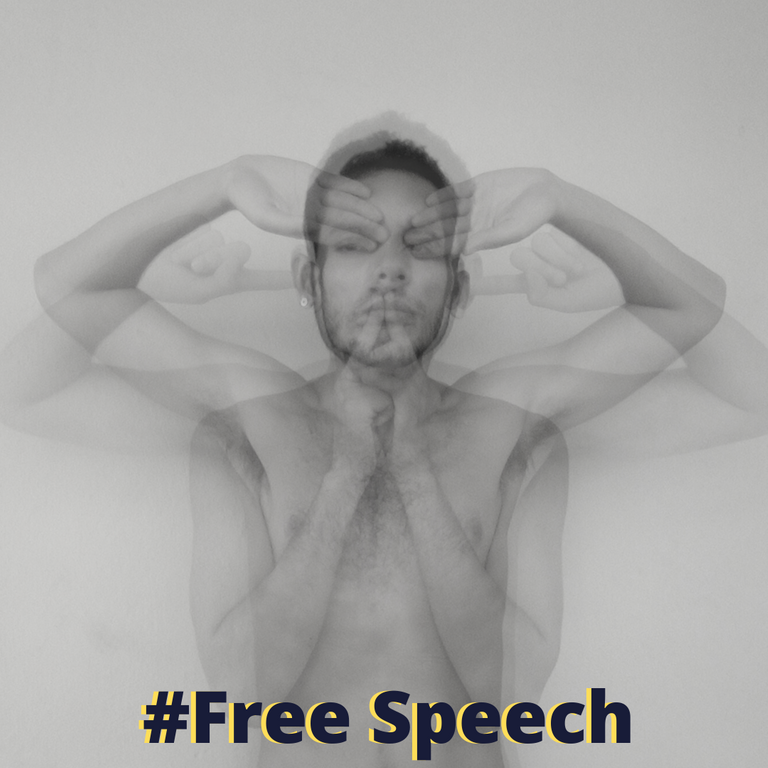
Cuando pienso en libertad de expresión, censura o comunicación, recuerdo perfectamente mi vida y en realidad no solo la mía, sino la de todos en cierto sentido.
Muchas de las publicaciones que vemos en el Internet, y menciono el Internet al ser en estos tiempos de Covid19 la principal herramienta para comunicarnos e informarnos.
Cuando observamos publicaciones en las redes sociales, notamos perfectamente el poder de la edición, el poder de la censura.
Si la página es ajena ya sea por trabajo o estudios, debemos adaptar las palabras y el comunicado en base al perfil que ya posee la página en cuestión. Si quiero publicar en la cuenta oficial de mi trabajo, debo escribir con cierta retórica y sentido político. Debo censurarme y complacer al espectador según lo que espera recibir de esa página.
Si por el contrario la página es propia, tus redes sociales, tú perfil. Podemos jugar ampliamente con la libertad. ¿Pero realmente es así?
Cuando realizamos una publicación estamos conscientes de que nuestros mensajes tienen una intención específica, tienen un poder que debemos tener consciente, y ese nivel de conciencia nos lleva a auto editarnos, a re leernos y re leernos, a borrar frases, sustituir palabras, editar contenidos. Porque la libertad de expresión en el fondo no es tan libre.
Esa libertad es un consenso social, esa capacidad de expresarnos se forma en colectivo, cuando aprendemos a leer, escribir, hablar y bien en nuestras familias, centros educativos y propios caminos de la vida. Nos van enseñando que decir y que no.
Los padres que te miran fijamente mientras cometes una imprudencia y te dicen “no digas esas cosas”, los profesores y maestros que te corrigen y te enseñan a expresarte “sin errores”. Esos momentos personales en los que en plena conversación compartes alguna idea y resulta atacada por otras personas mostrando “que estas bien o que estas equivocado”. Estos momentos que muchos vivimos cotidianamente se convierten en un filtro para la expresión.
La sociedad entonces se convierte en un gran jurado de comunicaciones, son quienes están alertas de las cosas que consumen en los medios para apoyarlas o para negarlas, entonces la libertad de expresión no recae en un sentido “objetivo” sino aún más importante en los “intersubjetivo” es decir, en la relación social.
Nosotros mismos somos nuestra censura, nuestra sociedad por ende también. Aun así aquí estoy diciendo lo que quiero decir y me satisface leer lo que ustedes también pueden compartir. Bajo la idea compartida de expresarnos libremente, pero tal vez no.
When I think about freedom of expression, censorship or communication, I perfectly remember my life and really not only mine, but everyone's in a certain sense.
Many of the publications that we see on the internet, and I mention the internet being in these days of covid19 the main tool to communicate and inform ourselves.
When we look at posts on social media, we perfectly notice the power of editing, the power of censorship.
If the page is foreign either for work or studies, we must adapt the words and the statement based on the profile that the page in question already has. If I want to publish in the official account of my work, I must write with some rhetoric and political sense. I must censor myself and please the viewer based on what they expect to receive from that page.
If, on the other hand, the page is your own, your social networks, your profile. We can play extensively with freedom. But is it really so?
When we make a publication we are aware that our messages have a specific intention, they have a power that we must be aware of, and that level of consciousness leads us to self-edit, re-read and re-read, delete phrases, replace words, edit content . Because freedom of expression is not so free
That freedom is a social consensus, that ability to express ourselves is formed collectively, when we learn to read, write, speak and do well in our families, educational centers and our own ways of life. They teach us what to say and what not.
The parents who stare at you while you are reckless and tell you "don't say those things", the teachers who correct you and teach you to express yourself "without mistakes". Those personal moments in which in the middle of the conversation you share an idea and it is attacked by other people showing "that you are right or that you are wrong". These moments that many of us experience daily become a filter for expression.
Society then becomes a grand jury of communications, they are the ones who are alert to the things they consume in the media to support or deny them, so freedom of expression does not lie in an "objective" sense but even more importantly in the "intersubjective ”, that is, in the social relationship.
We ourselves are our censorship, therefore our society too. Still here I am saying what I want to say and I am pleased to read what you can also share. Under the shared idea of expressing ourselves freely, but perhaps not.